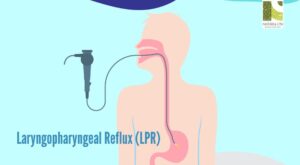Prioritizing Sleep Quality for Overall Well-being: Why Your Health Begins at Bedtime

By Team Nellikka.life
You may eat clean, exercise daily, and meditate regularly — but if you’re cutting corners on sleep, your wellness puzzle is far from complete.
In today’s 24/7 hustle culture, sleep is often the first thing we sacrifice. Yet, research tells us loud and clear: sleep is not a luxury — it’s a biological necessity. Without it, every system in your body begins to malfunction.
At Nellikka.life, we’re here to break the silence on sleep, backed by science — and help you reclaim rest as the pillar of your overall health.
What Happens When You Sleep?
While you rest, your body is busy:
- Repairing tissues and muscles
- Cleansing the brain of toxins
- Regulating hormones
- Consolidating memories and emotions
- Strengthening the immune system
Sleep is not passive downtime — it’s active recovery time for your body and mind.
The Science: Sleep and Your Body Systems
1. Immune Function
A study published in Sleep journal found that people who sleep less than 6 hours a night are more than four times more likely to catch a cold than those who sleep 7+ hours.
(Cohen et al., 2009)
2. Heart Health
The American Heart Association warns that poor sleep is associated with high blood pressure, heart disease, and stroke.
3. Brain and Mental Health
Sleep deprivation is directly linked to:
- Poor concentration
- Mood swings
- Anxiety and depression
- Increased risk of Alzheimer’s disease due to the buildup of beta-amyloid plaques
(Nedergaard et al., 2013, Nature Neuroscience)
4. Metabolism and Weight
Lack of sleep disrupts appetite hormones — ghrelin (hunger) increases and leptin (fullness) decreases — causing overeating and weight gain.
How Much Sleep Do You Really Need?
| Age Group | Recommended Sleep |
| Adults (18–64 yrs) | 7–9 hours |
| Older adults (65+) | 7–8 hours |
| Teens | 8–10 hours |
| Children | 9–12 hours |
Quality matters just as much as quantity. Interrupted or restless sleep doesn’t give your body the full benefits.
Tips to Improve Sleep Quality
Create a calming bedtime ritual – herbal teas, reading, or gentle stretching
Limit screen time at least 1 hour before bed
Stick to a sleep schedule — even on weekends
Avoid caffeine and heavy meals late in the evening
Keep your bedroom cool, dark, and quiet
Try mindfulness or breathing exercises if your mind races at night
Sleep Isn’t Just for Adults
Children and teens with irregular or insufficient sleep show:
- Poor academic performance
- Irritability and behavioral issues
- Weakened immunity
Parents: making sleep a family priority sets up your children for a lifetime of wellness.
Sleep and Holistic Health
Ayurveda calls sleep “nidra,” one of the three pillars of life, along with diet and sexual energy.
Yoga and mindfulness practices can help regulate your circadian rhythm, improve melatonin production, and bring deeper, more restorative sleep.
At Nellikka.life, we advocate an integrative approach to health — and sleep is the foundation of every other habit you want to build.
Reclaim Your Rest
We get it — life is busy. But you can’t “power through” poor sleep forever.
Sleep is the original medicine — free, natural, and deeply healing.
If you want sharper focus, stronger immunity, better mood, and longer life — it starts with honoring your need to rest.
So tonight, turn down the lights, take a deep breath, and let sleep do its magic.
Follow @nellikka.life for expert tips, lifestyle strategies, and science-backed wellness that begins with rest and radiates into every corner of your life.
#NellikkaLife #SleepMatters #BetterSleepBetterHealth #HolisticHealing #SleepScience #WellnessIndia #IntegrativeHealth #LifestyleMedicine





